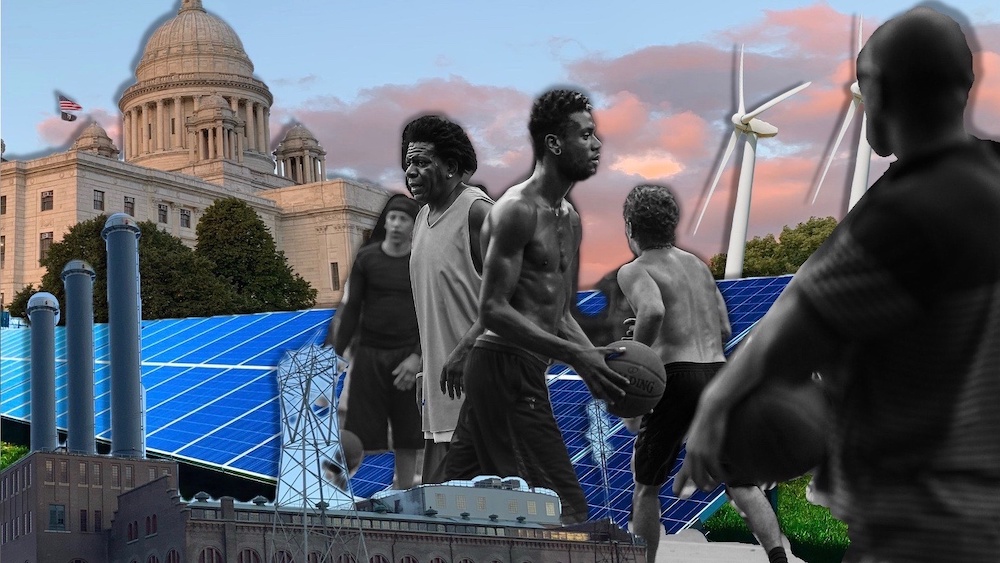If you’re interested in sharing your opinion on any cultural, political or personal topic, create an account here and check out our how-to post to learn more.
____
Co-written by Jordan Jefferson
____
Climate change is poised to have a disproportionate impact on low-income communities and communities of color. This form of environmental injustice will only intensify as climate instability accelerates. To address it, we need solutions that can work quickly while also safeguarding the economic well-being of our families and communities.
With this in mind, we have joined more than 350 student body presidents from across the country in support of the cornerstone climate solution known as carbon dividends. The statement signees represent all 50 states and people of all backgrounds and political perspectives.
As student body leaders of historically Black institutions, we believe this would be an important contribution to the cause of environmental justice. While the carbon dividends solution does not pretend to address all forms of environmental injustice, it does offer a politically viable way to achieve significant reductions in pollution and protect the health and safety of our families and communities. It is a concrete remedy to a problem that poses risks to everyone, but especially to Black Americans.
The carbon dividends solution would strike at the core of the climate challenge by holding companies accountable. By imposing a steadily rising fee on all carbon-based fuels, it would incentivize an economy-wide transition to clean energy and help slash the greenhouse gas emissions and associated pollutants that endanger public health. In fact, a carbon price of just a few pennies per pound of CO2 would position us to far exceed the goals of the Paris Climate Agreement.
Cutting emissions quickly would offer outsized benefits to Black and brown Americans. Studies have shown that while we contribute relatively little to air pollution, people of color suffer greater consequences, including increased risks of asthma and cancer. Many lower-income Black Americans live near highways or other pollution hotspots, increasing exposure to vehicle and industrial plant emissions. A swift and cost-effective transition to clean energy would alleviate many of these ills and usher in a safer, more healthy future for our families and communities.
In addition, to prevent the costs of this transition from falling on ordinary Americans, the carbon dividends program would return all the revenue raised by this fee to citizens in equal-sized quarterly payments. With a starting price of just $0.02 per pound of CO2, a family of four could expect to receive $2000 per year. Even accounting for the presence of a carbon fee, this would raise incomes for most lower-and middle-income households, helping Black and brown households particularly.
This simple dividend model is also more equitable and effective than other potential uses of the revenue. Government investment programs can suffer from bureaucratic complexity, years of delay and benefits that accrue to only some members of the community. By contrast, a cash dividend would bypass the red tape, reaching everyone, immediately. This would ensure we can address climate change while also directly supporting the economic health of everyone in our communities.
Finally, this carbon fee-and-dividend approach pays for itself and can be enacted and implemented swiftly. This would free up government resources to make long-overdue investments in healthcare, education and other public services that are needed to address income and racial injustice.
Given many of these advantages, the carbon dividends approach has earned support from top environmental organizations and climate champions, including Christiana Figueres, a key architect of the Paris Climate Agreement. More than 3,500 economists signed onto a statement in favor of the plan, the largest in the profession’s history. Signatories include all four top economic advisers to President Obama and researchers like Dr. Lisa D. Cook, a leading scholar of African-American economic history. In their words, with carbon dividends, “the majority of American families, including the most vulnerable, will benefit financially.”
As we work toward achieving environmental justice for all, the carbon dividends plan is a powerful and politically viable solution that would improve the wellbeing of Americans on the receiving end of environmental harm. This framework offers a surefire way to mitigate climate impacts on Black and brown communities, while ensuring that public and economic health are advanced at the same time. It is a smart approach that deserves broad support.
—
Myles Bartholomew served as Xavier University of Louisiana, Student Government President, 2019-2020, Brown University PhD student
Jordan Jefferson served as Jackson State University, Student Government Association President, 2019-2020; Harvard Kennedy School ‘24
